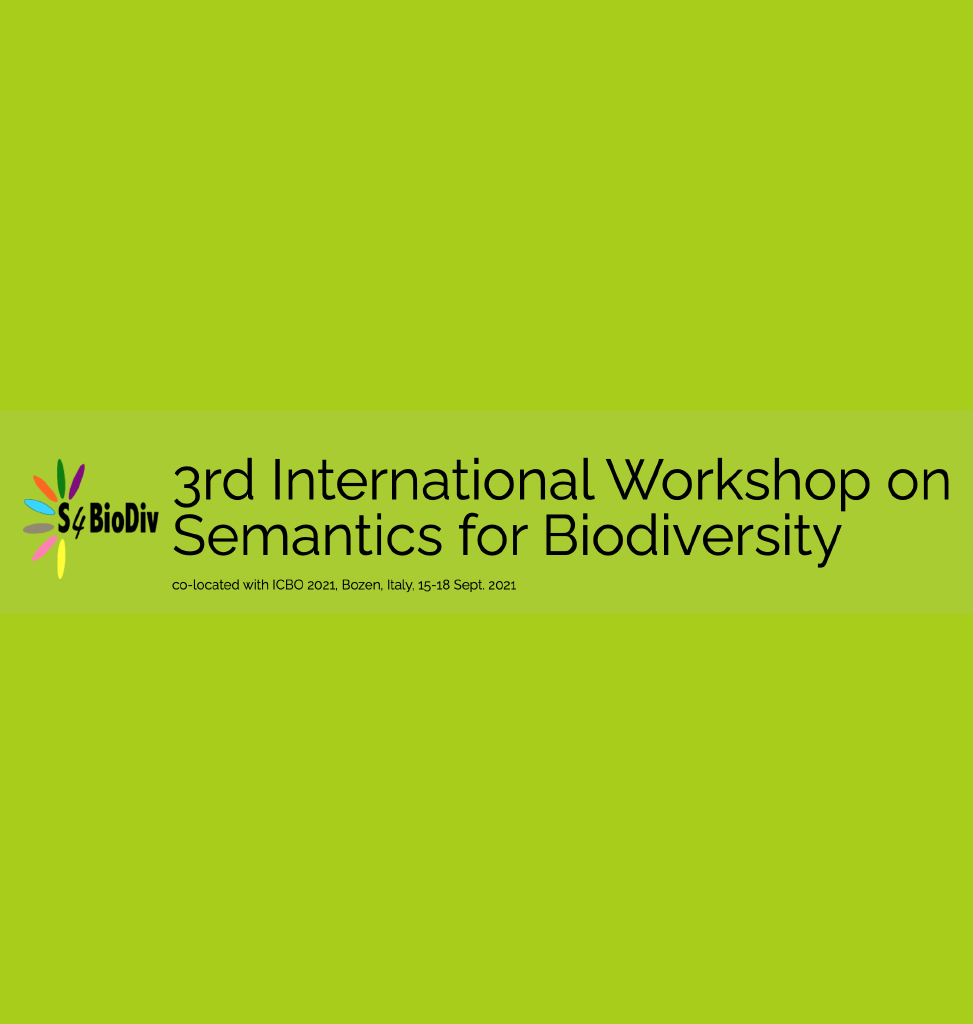3rd International Workshop on Semantics for Biodiversity
Home | Events | Researchers | 3rd International Workshop on Semantics for Biodiversity

Bozen, Italy, 15–18 September 2021. S4BioDiv 2021.
Biodiversity deals with heterogeneous data and concepts generated from a large number of disciplines in order to build a coherent picture of the extent of life on earth. The presence of such a myriad of data resources makes integrative biodiversity research increasingly important, as well as challenging given the variety of ways in which data and information are produced and made available. The Semantic Web approach enhances data discoverability, sharing, interoperability and integration through a formalised conceptual environment providing common formats, standards, and terminological resources.
This workshop aims to bring together computer scientists and biologists, working on Semantic Web approaches for biodiversity, ecology and related areas such as plant sciences, agronomy, agroecology or citizen science related to biodiversity. The goal is to exchange experiences, build a state of the art of realisations and challenges, and reuse and adapt solutions that have been proposed in other domains. The workshop focuses on presenting challenging issues and solutions for the design of high-quality biodiversity information systems leveraging Semantic Web techniques.
Topics of Interest and Application Domains
Topics related to the application and development of semantic technologies to support research in the biodiversity domain and related areas are welcomed These include, but are not limited to the following areas:
- Applications of Semantic Web technologies for biodiversity
- Semantic representation of biodiversity data
- Ontology (or semantic resource) development for biodiversity
- Knowledge extraction and text mining
- Semantic annotation of biodiversity data
- Semantic data integration
- Development and design of domain-specific ontologies
- Ontology-based applications
- Semantic approaches for the discovery of biodiversity data and research data services
- Semantic support for scientific workflows
- Data provenance and reproducibility
- Data lifecycle management
- Ontology learning
- Standards for biodiversity Data
- Linked Open biodiversity Data
- Interoperability of biodiversity and earth observation data
- FAIR biodiversity data with semantics
- Interoperability of biodiversity and earth observation data
- Enhancement of machine learning approaches with Semantic Web technologies.
Application domains:
- Biodiversity
- Agronomy, agro-ecology, agro-biodiversity
- Plant sciences
- Citizen Science related to biodiversity and related fields
Submission Guidelines
Authors are invited to submit electronically original contributions in English. Submitted papers should not exceed 10/12 pages for regular papers, 6 pages for position papers. All papers must be submitted non-anonymously in PDF format and must follow the IOS Press formatting guidelines. All submitted papers will be subject to a blind (but not double-blind) peer-review process. Papers must be submitted through the EasyChair system. Papers accepted at ICBO workshops will be published in a volume of CEUR workshop proceedings IAOA series.